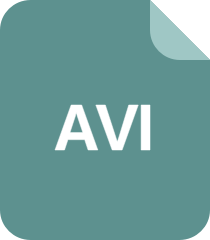//codebook BGS method
//adapt from book of learning opencv by mikewolf
//2008-11-25
#include "stdafx.h"
#include <cv.h>
#include <highgui.h>
#define CHANNELS 3
typedef struct ce {
uchar learnHigh[CHANNELS]; //High side threshold for learning
uchar learnLow[CHANNELS]; //Low side threshold for learning
uchar max[CHANNELS]; //High side of box boundary
uchar min[CHANNELS]; //Low side of box boundary
int t_last_update; //Allow us to kill stale entries
int stale; //max negative run (longest period of inactivity)
} code_element;
//码书结构
typedef struct code_book {
code_element **cb; //指向码字的指针
int numEntries; //码书包含的码字数量
int t; //count every access
} codeBook;
codeBook* TcodeBook;//包括所有像素的码书集合
//////////////////////////////////////////////////////////////
// int update_codebook(uchar *p, codeBook &c, unsigned cbBounds)
// Updates the codebook entry with a new data point
//
// p Pointer to a YUV or HSI pixel
// c Codebook for this pixel
// cbBounds Learning bounds for codebook (Rule of thumb: 10)
// numChannels Number of color channels we’re learning
//
// NOTES:
// cvBounds must be of length equal to numChannels
//
// RETURN
// codebook index
//
int update_codebook(
uchar* p,
codeBook& c,
unsigned* cbBounds,
int numChannels
)
{
unsigned int high[3],low[3];
int n;
for(n=0; n<numChannels; n++)
{
high[n] = *(p+n)+*(cbBounds+n);
if(high[n] > 255) high[n] = 255;
low[n] = *(p+n)-*(cbBounds+n);
if(low[n] < 0) low[n] = 0;
}
int matchChannel;
// SEE IF THIS FITS AN EXISTING CODEWORD
//
for(int i=0; i<c.numEntries; i++)
{
matchChannel = 0;
for(n=0; n<numChannels; n++)
{
if((c.cb[i]->learnLow[n] <= *(p+n)) &&
//Found an entry for this channel
(*(p+n) <= c.cb[i]->learnHigh[n]))
{
matchChannel++;
}
}
if(matchChannel == numChannels) //If an entry was found
{
c.cb[i]->t_last_update = c.t;
//adjust this codeword for the first channel
for(n=0; n<numChannels; n++){
if(c.cb[i]->max[n] < *(p+n))
{
c.cb[i]->max[n] = *(p+n);
}
else if(c.cb[i]->min[n] > *(p+n))
{
c.cb[i]->min[n] = *(p+n);
}
}
break;
}
}
// OVERHEAD TO TRACK POTENTIAL STALE ENTRIES
//
for(int s=0; s<c.numEntries; s++)
{
// Track which codebook entries are going stale:
//
int negRun = c.t - c.cb[s]->t_last_update;
if(c.cb[s]->stale < negRun) c.cb[s]->stale = negRun;
}
// ENTER A NEW CODEWORD IF NEEDED
//
if(i == c.numEntries) //if no existing codeword found, make one
{
code_element **foo = new code_element* [c.numEntries+1];
for(int ii=0; ii<c.numEntries; ii++)
{
foo[ii] = c.cb[ii];
}
foo[c.numEntries] = new code_element;
if(c.numEntries) delete [] c.cb;
c.cb = foo;
for(n=0; n<numChannels; n++)
{
c.cb[c.numEntries]->learnHigh[n] = high[n];
c.cb[c.numEntries]->learnLow[n] = low[n];
c.cb[c.numEntries]->max[n] = *(p+n);
c.cb[c.numEntries]->min[n] = *(p+n);
}
c.cb[c.numEntries]->t_last_update = c.t;
c.cb[c.numEntries]->stale = 0;
c.numEntries += 1;
}
// SLOWLY ADJUST LEARNING BOUNDS
//
for(n=0; n<numChannels; n++)
{
if(c.cb[i]->learnHigh[n] < high[n]) c.cb[i]->learnHigh[n] += 1;
if(c.cb[i]->learnLow[n] > low[n]) c.cb[i]->learnLow[n] -= 1;
}
return(i);
}
///////////////////////////////////////////////////////////////////
//int clear_stale_entries(codeBook &c)
// During learning, after you’ve learned for some period of time,
// periodically call this to clear out stale codebook entries
//
// c Codebook to clean up
//
// Return
// number of entries cleared
//
int clear_stale_entries(codeBook &c){
int staleThresh = c.t>>1;
int *keep = new int [c.numEntries];
int keepCnt = 0;
// SEE WHICH CODEBOOK ENTRIES ARE TOO STALE
//
for(int i=0; i<c.numEntries; i++){
if(c.cb[i]->stale > staleThresh)
keep[i] = 0; //Mark for destruction
else
{
keep[i] = 1; //Mark to keep
keepCnt += 1;
}
}
// KEEP ONLY THE GOOD
//
c.t = 0; //Full reset on stale tracking
code_element **foo = new code_element* [keepCnt];
int k=0;
for(int ii=0; ii<c.numEntries; ii++){
if(keep[ii])
{
foo[k] = c.cb[ii];
//We have to refresh these entries for next clearStale
foo[k]->t_last_update = 0;
k++;
}
}
// CLEAN UP
//
delete [] keep;
delete [] c.cb;
c.cb = foo;
int numCleared = c.numEntries - keepCnt;
c.numEntries = keepCnt;
return(numCleared);
}
////////////////////////////////////////////////////////////
// uchar background_diff( uchar *p, codeBook &c,
// int minMod, int maxMod)
// Given a pixel and a codebook, determine if the pixel is
// covered by the codebook
//
// p Pixel pointer (YUV interleaved)
// c Codebook reference
// numChannels Number of channels we are testing
// maxMod Add this (possibly negative) number onto
// max level when determining if new pixel is foreground
// minMod Subract this (possibly negative) number from
// min level when determining if new pixel is foreground
//
// NOTES:
// minMod and maxMod must have length numChannels,
// e.g. 3 channels => minMod[3], maxMod[3]. There is one min and
// one max threshold per channel.
//
// Return
// 0 => background, 255 => foreground
//
uchar background_diff(
uchar* p,
codeBook& c,
int numChannels,
int* minMod,
int* maxMod
)
{
int matchChannel;
// SEE IF THIS FITS AN EXISTING CODEWORD
//
for(int i=0; i<c.numEntries; i++) {
matchChannel = 0;
for(int n=0; n<numChannels; n++) {
if((c.cb[i]->min[n] - minMod[n] <= *(p+n)) &&
(*(p+n) <= c.cb[i]->max[n] + maxMod[n])) {
matchChannel++; //Found an entry for this channel
} else {
break;
}
}
if(matchChannel == numChannels) {
break; //Found an entry that matched all channels
}
}
if(i >= c.numEntries) return(255);
return(0);
}
IplImage* pFrame = NULL;
IplImage* pFrameHSV = NULL;
IplImage* pFrImg = NULL;
CvCapture* pCapture = NULL;
int nFrmNum = 0;
//IplImage* pFrImg = NULL;
//IplImage* pBkImg = NULL;
unsigned cbBounds = 10;
int height,width;
int nchannels;
int minMod[3]={20,20,20}, maxMod[3]={20,20,20};
int _tmain(int argc, _TCHAR* argv[])
{
//创建窗口
cvNamedWindow("video", 1);
cvNamedWindow("HSV空间图像",1);
cvNamedWindow("foreground",1);
//使窗口有序排列
cvMoveWindow("video", 30, 0);
cvMoveWindow("HSV空间图像", 360, 0);
cvMoveWindow("foreground", 690, 0);
//打开视频文件,
if( !(pCapture = cvCaptureFromFile("3.avi")))
{
fprintf(stderr, "Can not open video file %s\n");
return -2;
}
int j;
//逐帧读取视频
while(pFrame = cvQueryFrame( pCapture ))
{
nFrmNum++;
cvShowImage("video", pFrame);
if (nFrmNum == 1)
{
height = pFrame->height;
width = pFrame->width;
nchannels = pFrame->nChannels;
pFrameHSV = cvCreateImage(cvSize(pFrame->width, pFrame->height), IPL_DEPTH_8U,3);
pFrImg = cvCreateImage(cvSize(pFrame->width, pFrame->height), IPL_DEPTH_8U,1);
//cvCvtColor(pFrame, pFrameHSV, CV_BGR2HSV);//色

阿里matlab建模师
- 粉丝: 4972
- 资源: 2903
最新资源
- 无刷直流电机BLDC Sinulink仿真研究:双闭环PID控制算法的实践与应用,无刷直流电机BLDC的Sinulink仿真与双闭环PID控制策略,无刷直流电机BLDC sinulink仿真 无刷直流
- 长短期记忆神经网络LSTM与ELM算法对比下的天气预测研究(MATLAB编程实现),基于Matlab的长短期记忆神经网络(LSTM)与ELM算法对比的天气预测研究,长短期记忆神经网络(LSTM)预测天
- Rust通用代码生成器:莲花-Rust资源
- hotgo-移动应用开发资源
- MOXA网关662C配置资料.zip
- www.chajianxw.com_hgeljhfekpckiiplhkigfehkdpldcggm.zip
- HFI脉振方波高频注入与滑膜esmo代码详解:配套文档助你轻松学习开发,HFI脉振方波高频注入与滑膜esmo代码:详细开发文档与配套学习资源,HFI脉振方波高频注入代码 增强滑膜esmo代码 配套有文
- compose pdf示例.里面的repository.zip 解压到.m2下面,作为本地仓库引用
- Pinecone_Pi_Nano-单片机开发资源
- FactoryIO连续视觉分拣仿真:开源的SCL先入先出算法,适用于多种场景,详细注释+视频解说,适合初学者,基于TIA Portal V16与FactoryIO 2.5软件环境,FactoryIO连
- 西门子PLC的博途型S型速度曲线应用与加减速优化及位置轨迹规划方案,西门子博途PLC:S型速度曲线加减速控制及位置轨迹规划优化方案,西门子博途PLC S型速度曲线加减速(带位置轨迹规划) ,西门子博途
- vue3-ts-cesium-map-show-Typescript资源
- 基于N-K安全约束的光热电站电力系统优化调度模型:提升风电消纳与调度经济性,基于N-K安全约束的光热电站电力系统优化调度模型:提升风电消纳与调度经济性,含风电光伏光热电站电力系统N-k安全优化调度模型
- 双向Buck-Boost变换器:电压外环与电流内环控制下的能量双向流动与离散仿真应用,双向Buck-Boost变换器:电压外环与电流内环控制下的能量双向流动及离散仿真应用,双向buck boost变器
- MySQL基础-通用几何属性函数.pdf
- www.chajianxw.com_dhdgffkkebhmkfjojejmpbldmpobfkfo.zip
资源上传下载、课程学习等过程中有任何疑问或建议,欢迎提出宝贵意见哦~我们会及时处理!
点击此处反馈
























